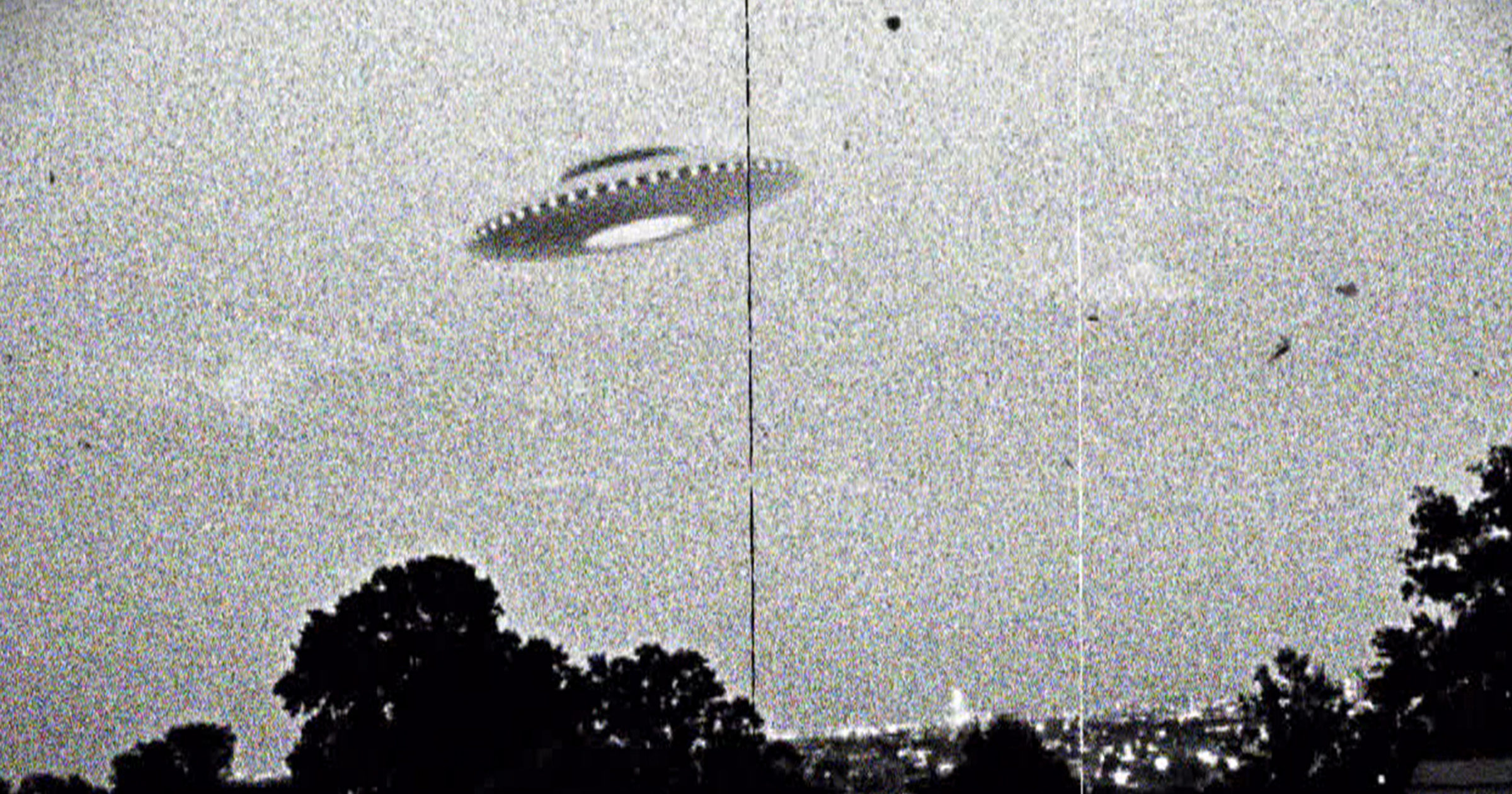
Science fiction author F. Brett Cox has explored the UFO phenomenon in short stories such as “It Came From the Sky” and “The Sexual Component of Alien Abduction,” which appear in his recent book The End of All Our Exploring. But as much as he loves UFO stories, he’s a firm skeptic when it comes to the idea of alien visitors.
“If you’re talking about ‘UFOs’ as ‘unidentified flying objects,’ if you ask, ‘Are there UFOs?’ then sure there are,” Cox says in Episode 470 of the Geek’s Guide to the Galaxy podcast. “There’s always that five percent of recorded cases over the years that cannot be explained. But if you then ask, ‘Are these UFOs alien visitors?’ my answer is ‘almost certainly not.’”
Cox has spent decades amassing a substantial library of books about UFO-related phenomena, such as Lemuria: The Lost Continent of the Pacific. “I’m fascinated by UFO subculture,” he says, “by just all of the apparatus that goes with it, and the history—particularly in this country—of the UFO phenomenon, and the people who are associated with it. So I’ve always been deeply interested in that.”
As a child Cox was involved in science fiction fanzines, and once received a letter from Richard Shaver, whose “Shaver Mystery” stories helped kick off the UFO craze. The letter contained pictures of rocks that Shaver claimed were evidence of a sinister underground civilization called the Deros. “Even at 15 years old, I thought, ‘Well, this is strange,’” Cox says. “And that was the extent of my correspondence with Richard Shaver because—wise beyond my years—I did not write back.”
Cox has also been working on a novel about UFO abduction, but says that the events of January 6 have made writing about conspiracy theories more complicated.
“There is a line to be drawn between aspects of the UFO community and QAnon, and the darker, more toxic levels of conspiracy,” he says. “So that’s forced me to rethink things. I’m not saying that I’ll never go back to that particular writing project, but I’m going to have to think differently about it when I do.”
Listen to the complete interview with F. Brett Cox in Episode 470 of Geek’s Guide to the Galaxy (above). And check out some highlights from the discussion below.
F. Brett Cox on his short story “A Bend in the Air”:
“I was asked to write a story for this anthology called Portals, which was stories about [magical] portals, and I had—a long time ago—written the beginning of a story that was informed by my reading for [Roger Zelazny: Modern Masters of Science Fiction], just to try something different, and I never could figure out really what kind of story needed to go with it. But then when I had the charge of writing a story about portals, that helped it fall into place. … The one place where I did cut myself some slack—somewhat indulgently—is there’s a scene in the story where the protagonist is sent on a quest, and it’s just barely within walking distance, so the authorities send him out to do this without a horse, and he’s griping about, ‘Why can’t I have a horse?’ And frankly, I was writing the story, and I don’t know much about horses, and I thought, ‘I don’t really have time to research this if I’m going to get this turned in on time. Eh, he can walk.’ So that was sheer expediency on my part.”
F. Brett Cox on his short story “The End of All Our Exploring”:
“It’s a post-pandemic story, and it is also about a couple who are estranged, and one of them wants to reunite in this post-pandemic world, and there is a conspiracy theory lingering in the background of the story about the role of China in the virus. Now, in the story, I had it as a mosquito-borne, not an airborne virus. When [Covid-19 happened] all I could think was, ‘Oh great, for once in my life I’m a sci-fi predictive sharpshooter, and this is what I come up with? Wonderful.’ … I’ll cite that not as proof of my prognosticating powers, because there’s no such thing, but I will say this is how things like that happen in science fiction stories—if you’re paying attention, if you have some sense of general trends in your own present day, you can work it out to a scenario like that.”
F. Brett Cox on Norwich University:
“I teach at Norwich University, which is a historically military college—it is in fact the oldest private military college in the United States. The large majority of the students are in the corps of cadets for the school, and are in military uniforms, and all full-time, tenure-track faculty are required to be in military uniform as well, and we are assigned military rank commensurate with—or at least somehow matched up with—our academic rank, so my military rank that matches my being a full professor is lieutenant colonel. And this is within the system of the Vermont State Militia, which is basically the Norwich faculty. … So if New Hampshire invades, we’re the first line of defense.”
F. Brett Cox on Andy Duncan:
“In two consecutive days after the [short story collection] came out, I had two different people here among my friends in Vermont—one within the faculty at the Vermont College of Fine Arts, the other of whom is a friend of ours within the theater community—say independently of each other—two different locations, two different times—they both said, ‘I’m reading your book, I’m liking it a lot, the stories are good, but [Andy’s] introduction, oh my god that’s wonderful! That was so great, I so enjoyed that.’ So I’m happy to report that Andy’s introduction is maybe a bigger hit than the stories in the book, which is fine. I appreciated him doing that. … Andy not only stepped up to the plate, but hit it out of the park, and I accept it gratefully.”
